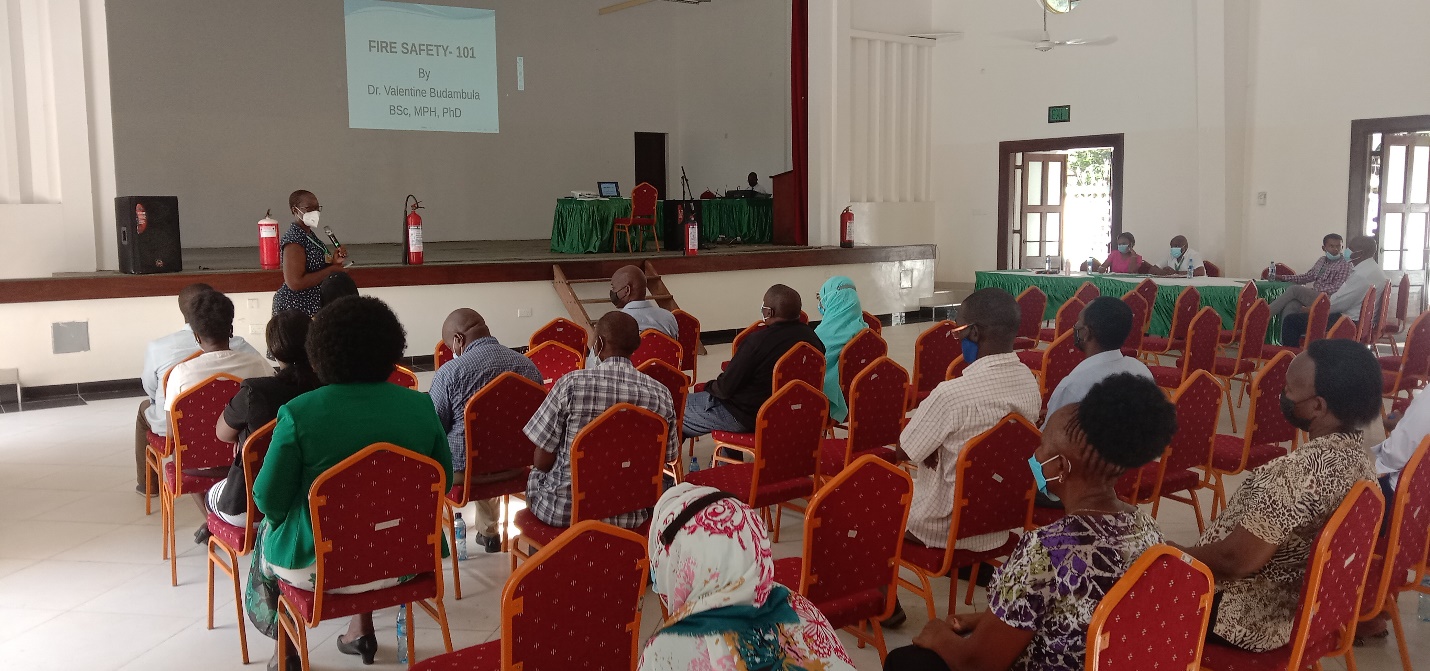TUM’s Committee of Occupational Safety and Health (OSH) held a 2-day training for all TUM staff on fire hazard preparedness. Opening the event, TUM’s Vice Chancellor Prof. Laila Abubakar stated the importance of acquiring fire safety skills, citing timely response to fire incidences and the technical know-how from the skilled persons on combating the spread and putting off of the fire save lives and property.
Addressing the congregation, the TUM Occupational Safety & Health Committee Chairperson, Dr. Cromwell Kibiti highlighted that TUM has been in the forefront in sensitizing its staff and students on fire safety by conducting trainings and fire drills which has proved to be helpful in the past. “With the rising fire cases in high schools, its only prudent to sensitize the whole TUM community on fire safety matters as well as take the TUM fire marshals through a refresher course.” He added.
Giving insights on fire hazard and safety measures, Dr. Valentine Budambula (Epidemiologist) and Dr. Johnstone Shume (Environmental Health Expert) cautioned the trainees on responding to fire without establishing the class and appropriate extinguishing agent. The use of wrong extinguishing agent contributes to severity of fire incidences and accidents where properties and lives are lost, respectively.
The Trainer, further explained that only (class A) fires, caused by wood, clothes and other ordinary combustible items can be put out by water. While all other fires, caused by liquid fuel like diesel & petrol (Class B), inflammable gases like Hydrogen and Butane (Class C), Combustible metal fires like Magnesium & Titanium (Class D), Class A and B fires, are ignited by energized electrical equipment like transformers & electrical home appliances (Class E) can be extinguished by foam, dry chemical, Carbon dioxide or dry sand as appropriate. While Class F (K) fire caused by overheated cooking fats and oils can be put out by wet chemical extinguishers. Participants were also made aware of the fact that; it is a criminal offence to interfere or destroy firefighting equipment at the workplace(s).
It was noted that most fires in the residence areas are caused by assembling inflammables and fuels together in a place like kitchen where a simple mistake can cause irreversible damage.
‘An ounce of prevention is worth a pound of Cure’
By Benjamin Franklin






